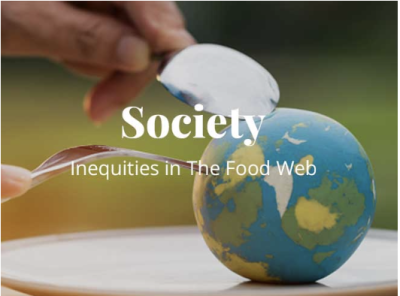Society - Inequities in The Food Web

The modern diet is only possible because of the poverty, slavery, and degradation that is suffered by those who produce the food or are trapped in an economic dead-end where only poor-quality food is available to them. We do not often consider where our food comes from, and who did the work to produce it even less.
The idea that every action has an equal and opposite reaction carries a great deal of weight in Western culture. After all, it’s one of Isaac Newton’s laws of motion. The idea is not limited only to the world of measurable particles but is reflected in many common activities. It is expressed in religions and philosophies from around the world and may be one of the most consistent concepts that unite spiritual thought.
In Buddhist, Christian, and Hindu traditions, Newton’s law is expressed in such sayings as “Do unto others as you would have them do unto you” or “You will not be punished for your anger—you will be punished by your anger.” Often these concepts are seen as instructions for rewards or punishment in a future life. In the Eastern religions, they are part of karma. “As you sow, so shall you reap.” Well, if that is true, there is some very uncomfortable reaping on our horizon.
The modern diet causes huge physical damage. Making dietary changes can be challenging for some, but the fear of disease or the desire to live a healthier life can be a powerful motivation. Self-preservation can push us toward healthy eating; however, it barely alters our fundamental attitudes to either food or health. True health encompasses more than measurable physical factors. Health measures mind and spirit as well as bodily functions.
If we make choices out of line with our principles, we find ourselves in a dilemma that undermines our sense of self. But still, we stubbornly refuse to adapt to the unpleasant truth; instead, we tend to freeze or lash out when change is required. But there are consequences—unforeseen and, indeed, unseen—to our refusal to adapt. These unintended consequences often rebound in the suffering of other humans, other species, and the damage to the environment. We could call it the “collateral damage” in our war against nature.
Environmental issues are often the solid backup argument for eating organic food or becoming vegan. Why would anyone interested in creating a sustainable planet continue consuming any animal products? Concern for animals must include the human lives that are sacrificed for our diet. The ethical choice is clear. Creating a comprehensive food ethic requires us to reflect on our concern for all life both human and non-human.

